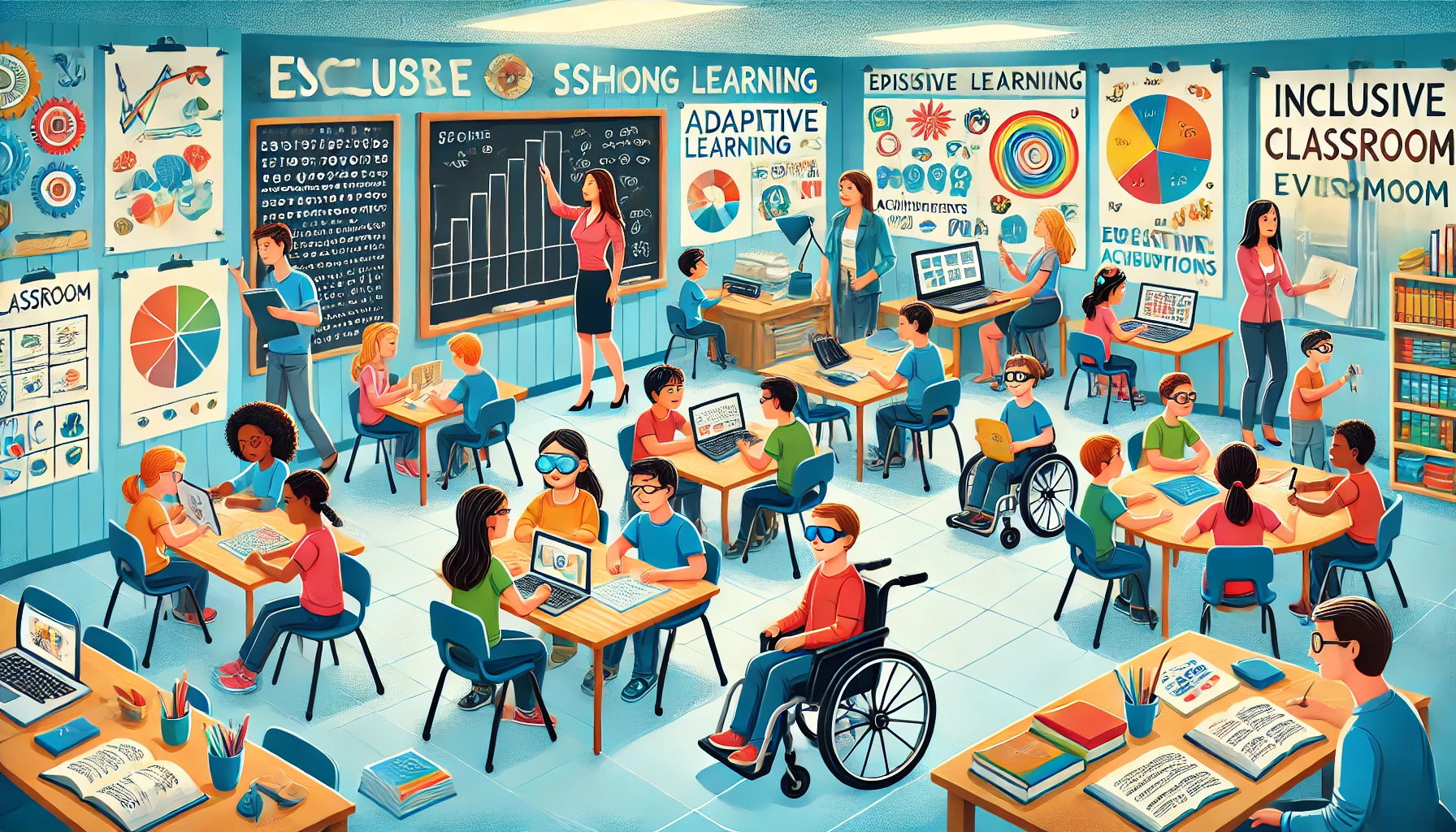Empowering Teachers and Reforming Schools for Inclusive and Equitable Education
The research explores strategies to address barriers to learning by empowering teachers, reforming institutional policies, and fostering collaboration among educators, families, and communities. It highlights the transformative impact of inclusive education while calling for sustained reforms to ensure equity and adaptability in schools.

A study developed by the World Bank examines the complex challenges faced by students dealing with barriers to learning and outlines solutions through institutional reforms and instructional strategies. The research underscores the importance of creating environments where diverse learning styles are embraced, and facilitated by collaboration among educators, families, and policymakers. By analyzing the nature of learning obstacles, the study reveals how external factors such as socioeconomic inequities and internal struggles like cognitive and emotional difficulties impede academic success. Through case studies and data-driven insights, the document advocates for evidence-based interventions tailored to individual student needs.
Empowering Teachers as Change Agents
Teachers are positioned at the center of this study as key drivers of inclusive education. The research highlights the need for comprehensive training programs to empower educators with the skills necessary to identify and address a spectrum of learning challenges. By employing differentiated instruction techniques and leveraging adaptive technologies, teachers can better cater to students with disabilities or learning difficulties. Professional development initiatives play a pivotal role in ensuring educators are prepared to handle diverse classroom dynamics. The study further emphasizes the significance of early intervention, where timely assessments and personalized support plans mitigate potential long-term challenges. Schools that employ proactive strategies such as mentorship programs and peer-support systems report significant improvements in student engagement and academic outcomes.
Institutional Policies for Inclusive Learning
The study critiques traditional educational models, often found to marginalize students from disadvantaged backgrounds or those with special needs, and advocates for a shift toward flexible, student-centered learning environments. By incorporating universal design principles in curriculum development, institutions can ensure that learning materials and activities are accessible to all students. The research illustrates how fostering a school culture that values diversity, collaboration, and well-being enhances both student and teacher experiences. Case studies demonstrate how inclusive policies, when implemented effectively, result in higher levels of student participation and academic success. These findings stress the importance of aligning institutional policies with the needs of a diverse student population to create equitable opportunities for all.
Collaboration: A Cornerstone of Educational Equity
The research underscores the vital role of collaboration among educators, families, and community stakeholders in creating inclusive educational systems. Parental engagement, for instance, is shown to reinforce learning and provide crucial emotional support for students navigating challenges. Partnerships with community organizations and mental health services further address systemic issues like poverty, trauma, and limited access to resources. A holistic approach, integrating academic, emotional, and social dimensions of student well-being, emerges as a key strategy for overcoming barriers to learning. Schools that adopt such multi-stakeholder frameworks benefit from a robust support network that extends beyond classrooms, addressing the root causes of learning inequities.
Measuring Success and Identifying Gaps
The study evaluates the impact of inclusive interventions through both qualitative and quantitative methods, revealing tangible improvements in student outcomes. Schools implementing targeted support programs report higher attendance rates, increased student engagement, and measurable academic progress. Anecdotal evidence from students who overcame significant obstacles highlights the transformative potential of inclusive education. However, persistent gaps remain, such as inadequate funding, limited access to resources, and resistance to institutional change. These challenges underscore the need for sustained investment in education reform and a commitment to fostering adaptability within schools.
The research provides a roadmap for addressing barriers to learning by combining innovative strategies, collaborative frameworks, and systemic reforms. It highlights the role of education as a tool for empowerment and equity, emphasizing the need for a collective commitment to continuous improvement. By building resilient educational systems that adapt to diverse student needs, the findings contribute to a broader vision of inclusive learning. With clear evidence of success and actionable insights, this study sets the stage for meaningful dialogue and lasting change in the education sector.
- READ MORE ON:
- World Bank
- investment in education
- educators
- FIRST PUBLISHED IN:
- Devdiscourse










